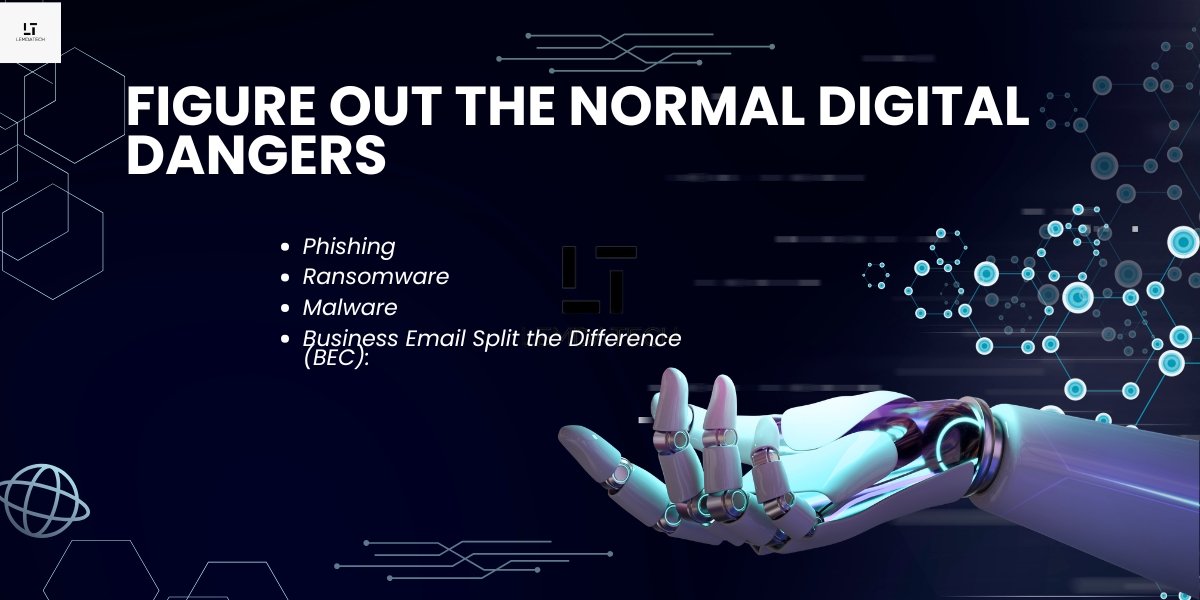Cybersecurity tips for small businesses are essential in today’s digital landscape, where threats like phishing, malware, and data breaches are on the rise. Small business owners often think cyber threats only target larger companies, but in reality, small businesses are frequently seen as easy targets due to limited security resources. Implementing basic cybersecurity measures can protect your business data, keep customer information safe, and build trust in your brand.
In the present computerized world, online protection is pivotal for organizations, everything being equal, including little ones. Digital dangers are continually developing, and keeping in mind that enormous organizations frequently have the assets to protect themselves, private companies can be more helpless. Numerous cybercriminals view private companies as obvious objectives, accepting they miss the mark on assets to sufficiently get their organizations. Nonetheless, with a couple of proactive advances, private ventures can safeguard themselves, their client information, and their standing from digital dangers.
Here are a few fundamental tips to assist independent ventures with reinforcing their online protection pose.
1. Figure out the Normal Digital Dangers
Before implementing safety measures, it’s essential to understand the types of digital threats you may face. Some common ones include malware, phishing, and ransomware. Here are some cybersecurity tips for small businesses to stay protected against these risks:
- Phishing: Misleading messages that look genuine, requesting that workers click a connection or enter individual data.
- Ransomware: Malignant programming that scrambles information, keeping it prisoner until a payment is paid.
- Malware: Different types of unsafe programming that can harm or upset frameworks.
- Business Email Split the Difference (BEC): Assailants get to a representative’s email record to take data or stunt others inside the association.

2. Train Your Representatives on Network Safety Best Practices
Your representatives are the primary line of safeguard against digital dangers. Independent ventures ought to carry out normal network protection instructional courses to teach workers about web-based well-being works, recognizing dubious exercises, and dealing with information safely.
- Ensure preparation incorporates: Train workers to confirm email sources and try not to tap on dubious connections.
- Solid secret phrase creation: Urge workers to utilize complex passwords that consolidate letters, numbers, and images.
- Safe web use: Remind them not to visit unstable sites or download unapproved programming.
Investing resources into network safety preparation is a proactive method for creating a culture of mindfulness and lessening the risk of inadvertent breaks caused by human error.
3. Implement Strong Password Policies
Passwords are the first barrier against unauthorized access. Small businesses should enforce a strong password policy that requires employees to:
- Use unique, complex passwords for each account.
- Avoid reusing passwords across multiple platforms.
- Change passwords periodically, ideally every three months.
Encourage password managers to help employees store and manage complex passwords securely. Password managers generate and store secure passwords for each account, minimizing the risk of weak or reused passwords.

4. Enable Two-Factor Authentication (2FA)
Two-factor authentication (2FA) adds an extra layer of security to accounts by requiring users to verify their identity in two different ways—typically a password and a temporary code sent to their phone or email. Even if a password is compromised, 2FA makes it more difficult for cybercriminals to gain unauthorized access. Enable 2FA for all business accounts, especially those that handle sensitive data like email, financial records, and customer databases.
5. Regularly Update Software and Systems
Obsolete programming can have security inadequacies that cybercriminals exploit. Guarantee that all things, working designs, and applications are resuscitated routinely. Different things animate merge security fixes that address known inadequacies. Draw in adjusted strengthens where conceivable so you don’t need to depend upon specialists attempting to resuscitate their designs.
Likewise, consider utilizing dependable antivirus programming and confirm it’s top tier. Antivirus programming can perceive and obstruct malware, ransomware, and other noxious assaults before they can hurt your designs.
6. Protect Your Wi-Fi Network
A secure Wi-Fi network is essential to prevent unauthorized access to your business’s internal systems. Protect your Wi-Fi by:
- Using a strong password.
- Hiding your network’s SSID (so it’s not publicly visible).
- Enabling WPA3 encryption, which is currently the strongest form of Wi-Fi security.
If you have a guest network for customers, make sure it’s separated from your business network to limit access to sensitive information.

7. Back-Up Your Data Regularly
“Data loss from cyberattacks, human error, or hardware failure can be disastrous. Regular data backups are essential to recover from such incidents. Here are cybersecurity tips for small businesses: prioritize frequent backups, use strong passwords, and train employees on security best practices.”
- Plan customary, mechanized reinforcements for all basic business information.
- Store reinforcements in numerous areas, like in the cloud and on outside hard drives.
- Test the reinforcements intermittently to guarantee they fill in true to form.
By supporting your information, you’ll have the option to quickly restore systems in case of a digital incident or data loss. Cybersecurity Tips for Small Businesses: Regularly back up data, use strong passwords, update software, implement multi-factor authentication, and educate employees on phishing scams. This approach helps protect against potential breaches and ensures smooth recovery if data is compromised.
8. Limit Access to Sensitive Information
Not all workers need admittance to a wide range of information. Restricting admittance to delicate data is a straightforward method for decreasing gamble. Carry out the standard of “least honor” by permitting representatives to get to just the information and frameworks expected for their job. This training limits the possibilities of touchy data being spilled or gotten to by unapproved staff, lessening the potential for information breaks.
9. Use Firewalls and Anti-Malware Tools
Firewalls screen approaching and active organization traffic, going about as an obstruction between your inward organization and untrusted outside organizations. Most working frameworks have implicit firewalls, which ought to be empowered and appropriately designed. Notwithstanding firewalls, utilize hostile to-malware apparatuses to distinguish and eliminate noxious programming. Hostile to malware programming gives an extra layer of guard against digital dangers.
10. Think about Digital Protection
Digital protection is intended to assist organizations with recuperating from monetary misfortunes due to cyberattacks. Digital insurance contracts shift, yet they regularly cover costs related to information breaks, ransomware, business interference, and risk for lost or taken client information. While few out of every odd private company might require digital protection, it merits considering, particularly in the event that you handle delicate client data.
11. Secure Remote Access for Telecommuters
In the event that your representatives work from a decent way, ensure they’re getting to affiliation information safely. Guess that they ought to interface through a Virtual Characterized Affiliation (VPN), which encodes web affiliations and makes it hard for cybercriminals to get information. Additionally, ensure far away workers follow near association security shows as those in the workplace, including strong regions for utilizing, 2FA, and restored antivirus programming.
12. Make an Episode Reaction Plan

In case of a mechanized episode, a reaction plan helps guide your get-together in dealing with the circumstance. Your strategy ought to frame:
- Who to contact: Give out an individual or get-together committed to overseeing episodes.
- Progresses toward containing the break: Activities to segregate impacted designs and keep the assault away from spreading.
- Correspondence strategies: Pick how to illuminate workers and clients, and possibly police delicate information is compromised.
- Recuperation steps: Plan how to reestablish frameworks and information strongholds to return to the same old thing.
Having a response plan in place can reduce the impact of a cyber incident and help your business recover quickly. Cybersecurity Tips for Small Businesses: Develop a response plan, regularly back up critical data, use strong passwords, enable multi-factor authentication, keep software updated, and train employees on recognizing phishing attempts. These steps can help safeguard your business and ensure a faster recovery if a breach occurs.
13. Remain Informed About Web based confirmation Models
Automated dangers are continually advancing, so remaining informed is fundamental. Become engaged with network prosperity flyers, join online discussions, and go to industry online courses to stay aware of new dangers and best practices. As dangers change, changing your association security approach guarantees that your business stays protected against the most recent dangers.
Last Considerations
Online security could appear to be overwhelming, particularly for private undertakings with restricted assets. Regardless, even little advances like preparing workers, utilizing solid passwords, and proceeding to program restoration can go far in safeguarding your business. By going to these proactive lengths, secret undertakings can guard themselves against cutting-edge chances, guaranteeing they can keep on serving their clients and make it without trifling dangers. Network security isn’t just a crucial piece of current business but what’s more a strategy for building trust and conviction with your clients, understanding that their data is protected in your grasp.